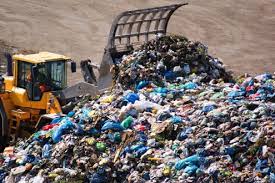F.P. Report
RAWALPINDI: The garrison city, once reckoned among the cleanliest cities in the country, is fast losing its beauty due to rising pollution and uncollected solid waste with majority of its population exposed to serious health hazards.
With more than half of daily generated solid waste remaining uncollected, the chunk lifted by the city managers is also dumped in open in city’s vicinity since no proper waste segregation or treatment mechanism is in place.
As the figure of waste generation varies between 3000 to 4000 tonne daily, the concerned departments can lift only 1000 tonne randomly with remaining waste either moving to sewage or lies at streets in small heaps.
The existing workforce, machinery, vehicles and non-availability of modern dumping sites are the main reasons behind the city managers’ inability to keep roads and residential areas clean.
Rapid urbanization due to massive population influx from other cities and adjoining rural areas resulting in mushroom growth of new housing societies in the outskirts of Rawalpindi, is another challenge for authorities.
Although the officials of Rawalpindi Waste Management Corporation (RWMC) claim to collect and properly dispose of solid waste, the situation on ground is otherwise.
“We are efficiently and effectively providing solid waste management services across the city,” claimed RWMC’s Chief Executive Officer Ahmed Nawaz Gondal. “”Daily we collect around 1000 tone solid waste by deploying 3800 sanitary workers and 243 different types of vehicles.”
He said presently the corporation is dispensing duties at five cities of Rawalpindi District. “The waste collected from different areas is gathered at Liaqat Bagh and then transported to a dumping site at Losar, Chak Beli road some 30 kilometres from Rawalpindi city.”
He explained that RWMC provides services like placement of waste containers, manual mechanical sweeping, mechanical washing, waste collection, waste transportation, disposal, de-silting of tertiary drains, plot clearance and resolution of complaints received through helpline 1139. “RWMC has a Vehicle Trip Counting System (VTCS) operated automatically without human involvement.”
The CEO informed that RWMC also carries out solid waste management services at 24 Metro Bus Stations including mechanical washing of Metro Bus track, stairs and escalators, platform, pedestrian bridge, auxiliary areas and washrooms.
He said improper dumping of waste by citizens was the biggest problem for RWMC and urged the residents to throw garbage in waste containers instead of drains, open plots and roads.
A recent study conducted by School of Social Sciences and Humanities, National University of Sciences and Technology (NUST) has revealed that waste collected across Rawalpindi is dumped in open without any gas collection or leachate management system for the safety of ground and surface water resources.
Environmentalists and health experts have described burning or dumping solid waste in open as hazardous for human health and environment calling upon authorities to put in place a proper mechanism of disposal.
“A landfill site and state-of-the-art disposal plants were essential for solid waste management as per international standards to mitigate environmental pollution and avert hazards to human health,” remarked Environmental Protection Agency (EPA) Deputy Director Muhammad Rafique.
He said the World Health Organization (WHO) has also termed open sewage channel of Nullah Leh in Rawalpindi a significant cause of pollution stating, “installation of waste disposal plant had become inevitable for Rawalpindi.”
“We are already paying a heavy price of environmental degradation in terms of resources damage and human ailment,” Rafique said.
“Therefore, we direly need to focus this issue for environmental protection and lessen healthcare burden on our economy.”
As all of daily generated waste is seldom collected by authorities due to insufficient infrastructure, its sizeable amount flow into Soan river or Nullah Lai, posing serious health hazards as both run through thickly populated areas.
There is also a behavioral tendency of the citizens not to throw their randomly in streets dispose of waste containers, least caring for their own and other’s health.
“Improper solid waste management and its dumping in open poses health hazards like cough, bronchitis, congestion, skin and liver diseases, asthma and even cancer,” said District Health Officer Dr Waqar Ahmed.
“Households closer to dumpsites were more vulnerable to various risk factors like foul smelling, air pollution, water contamination, mosquitoes and rodents,” Dr Waqar said. “The number of patients suffering from air and water pollution is rising with more people suffering from liver, lungs and stomach diseases.”
He called for devising a comprehensive strategy involving concerned civic authorities, citizens, environmental and health experts. “If we continue to shy away from this challenge, more and more people will be falling ill.”
In this situation, the experts have also suggested public consultation and household involvement for promoting the method of 3 RS; reduction, reuse and recycling of solid waste.
But by the time, even at major cities the waste is jumbled in a single container and this non-segregated openly dumped waste triggers highest volume of leachate especially during monsoon, polluting the vicinities.
Therefore, since the country lags far behind in mechanized waste collection, segregation and recycling, there is dire need for putting in place a proper mechanism to tackle this issue. (APP)







